Franklin Vets
Franklin Vets - excellence in veterinary care for dairy, farming, lifestyle, equine and household pets. BESTPRACTICE ACCREDITED NZ.
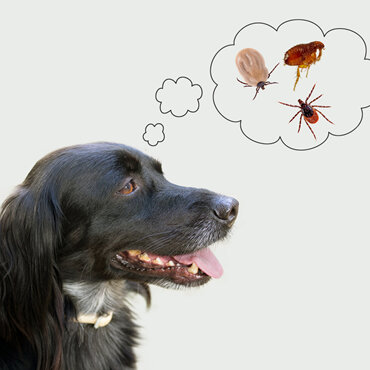
Flea bites can cause itching and in some cases, can be severe and lead to hair loss, inflammation and secondary skin infections. Preventative flea care needs to be ongoing.
To get on top of infestations, and depending on the medication chosen, cats and dogs need to be treated every month for 3-4 months, and the environment needs to be treated as well using flea bombs. It is important to vacuum and wash animal bedding regularly. It takes several weeks to eliminate the fleas and ongoing treatment of pets should be maintained even after the flea numbers have subsided.
Environmental sprays must contain Insect Growth Regulators (IGR’s) as this stops flea egg development. Insecticides do not affect flea eggs. We recommend Pyriproxifen – Indorex house packs.
Dogs that are allergic to fleas have a severe itch-producing reaction to flea bites. The dog’s response to the intense itching is to chew, lick or scratch. This causes hair loss and can lead to open sores or scabs on the skin, allowing a secondary bacterial infection to begin. Steroids can be issued to give relief from the allergic reaction and where bacterial infection of the skin occurs, antibiotics will need to be administered.
Ticks will feed on a variety of animals including dogs. They jump onto your pet and feed by sucking blood. They cause irritation and create wounds that can become infected. In extreme cases, your pet may become ill from loss of blood.
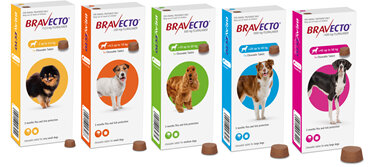
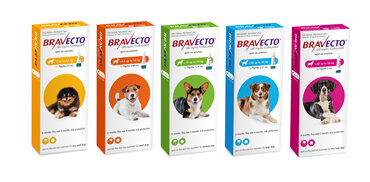
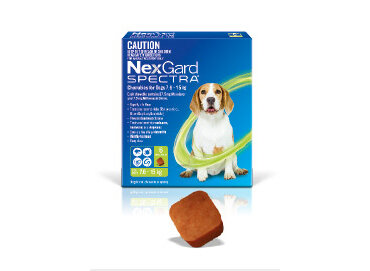

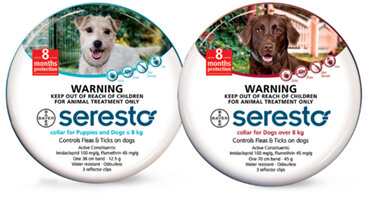
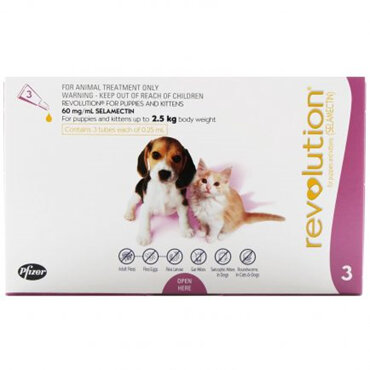

Once they have found their way into the gut, parasitic worms will survive by sucking on your pet’s blood. If left untreated, they can be a serious health risk. As they are internal, they may go unnoticed which is why it is important to treat your pet as per our worming protocol below.
And remember, worms pose a threat not only to our pets but to human health as well.
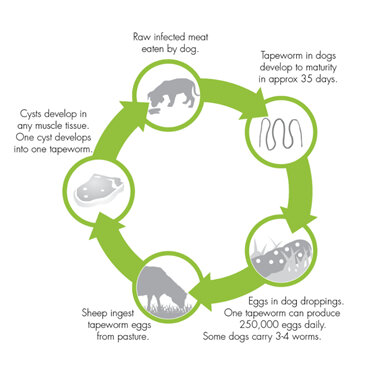
Sheep measles
Sheep measles refers to a tapeworm that cycles through both dogs and sheep (see image to the right) – the adult worm lives in the dog with larvae forming cysts within the muscle of sheep and goats after they pick them up from pasture where dogs have been. Dogs living on a farm, with sheep should be treated monthly with a product containing praziquantel to ensure they are not carrying any adult tapeworms – we recommend Wormicide. Any dog going onto a property where sheep and goats graze should be treated at least 48 hours beforehand.
Dogs are infected by eating larvae living within sheep or goat muscle – any sheep or goat meat should be either frozen to –10 degrees Celsius for 10 days or cooked until well done before feeding to ensure any larvae that may be present within the meat are killed. This is also true for any meat purchased from the supermarket or a butcher, none can be assumed to be safe to be fed without prior treatment.

Make it simple. Sign up to YourPetDirect & get it delivered to your door.